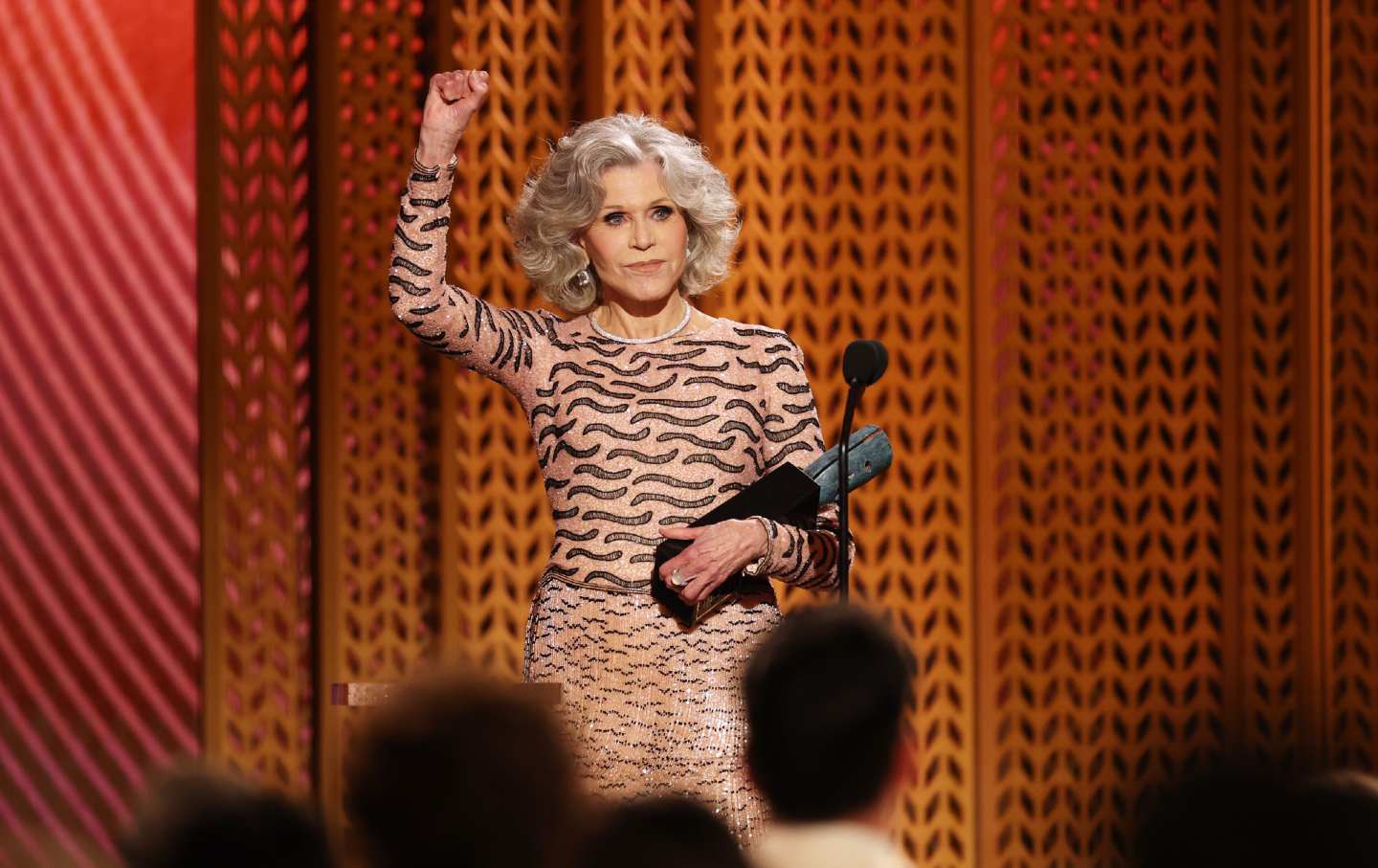
"Earlier this month, actor and activist Jane Fonda announced the reformation of the Committee for the First Amendment (CFA), the organization her father Henry Fonda joined in 1947 as Hollywood's initial answer to the House Unamerican Activities Committee (HUAC). Its revival is an inspiring bid to galvanize the principled resistance to the anticommunist inquisitions of the McCarthy era in our current collapsing democracy-but the original CFA is also a cautionary tale in the long history of the entertainment industry's tolerance for dissent."
"We saw the inspiring side last February, when Fonda accepted a Lifetime Achievement Award from the Screen Actors Guild (SAG). In her acceptance speech, she threw down a challenge to her fellow actors. "Have any of you ever watched a documentary of one of the great social movements-apartheid or civil rights or Stonewall-and asked yourself, would you have been brave enough to walk the bridge? We don't have to wonder anymore. We are in our documentary moment. This is it, and it's not a rehearsal!""
"As you might expect, Fonda did not wait around for her moment. Her revival of the CFA is her answer to it-a recognition of how the second Trump White House is dismantling the basic civil liberties of Americans. In cities and states across the country, citizens are passing their documentary-moment tests by taking to the streets to oppose ICE and the Trump administration's federalization of law enforcement."
Jane Fonda relaunched the Committee for the First Amendment (CFA), originally formed in 1947, to protect free expression against contemporary threats from the Trump administration. The revival aims to galvanize principled resistance reminiscent of opposition to McCarthy-era anticommunist inquisitions while acknowledging the CFA's history as a cautionary example of Hollywood's uneven tolerance for dissent. Fonda urged fellow actors to act in a 'documentary moment' and highlighted civic protests opposing ICE and federalization of law enforcement. Institutional responses to threats such as funding cuts tied to curriculum and protest policies have been weak, with few notable exceptions.
Read at The Nation
Unable to calculate read time
Collection
[
|
...
]